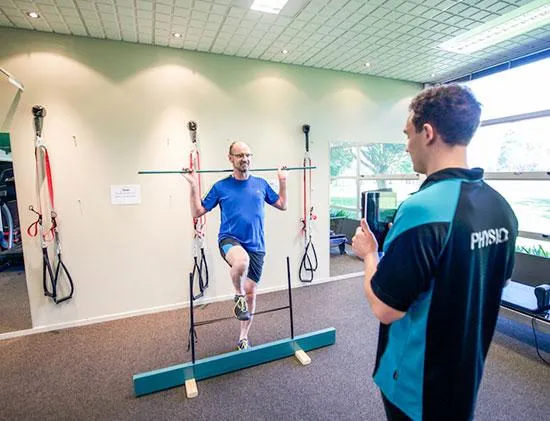
What’s Causing Your Headaches? Identifying the Root Cause
If you’re someone who suffers from frequent headaches, you know how frustrating it can be. Whether it’s the intense, pounding pain of a migraine or the constant pressure of a tension headache, it’s easy to feel like you’re just dealing with the symptoms rather than getting to the root cause. At Muscle People Physiotherapy, we want to help you understand what might be triggering your headaches and how you can start addressing the underlying issues. Let’s dive into the different types of headaches and what could be causing them.
1. Tension Headaches: The Most Common Type
Tension headaches are often caused by muscle tightness and stress in the neck, shoulders, and upper back. These headaches typically cause a dull, aching pain that feels like a band around your head, often accompanied by tightness in the neck and shoulders.
What Causes Them?
Poor Posture: Slouching or sitting in awkward positions for long periods can strain the muscles in your neck and shoulders, leading to tension headaches.
Stress: Emotional stress or anxiety can lead to muscle tension, especially around the neck and jaw, contributing to headache pain.
Sedentary Lifestyle: Lack of movement and sitting for long periods without stretching can also lead to muscle tightness and headache pain.
How Physiotherapy Can Help: Physiotherapists can help by teaching you posture correction, providing manual therapy, and guiding you through exercises to relieve muscle tension and improve mobility.
2. Migraines: More Than Just a Headache
Migraines are a type of headache that typically cause severe, throbbing pain, often on one side of the head. Migraines are usually accompanied by other symptoms, such as nausea, sensitivity to light and sound, and even visual disturbances known as "auras."
What Causes Them?
Genetics: A family history of migraines can increase the likelihood of experiencing them.
Hormonal Changes: Many women experience migraines related to hormonal changes, particularly around menstruation, pregnancy, or menopause.
Dietary Triggers: Certain foods like chocolate, caffeine, alcohol, and foods with preservatives may trigger migraines in some individuals.
Stress and Sleep Issues: Just like tension headaches, stress and irregular sleep patterns can trigger migraines.
How Physiotherapy Can Help: While migraines may have a neurological origin, physical factors such as neck instability or tight muscles can exacerbate the condition. Our approach focuses on improving spinal function and posture, addressing muscle imbalances, and providing gentle manual therapy to relieve tension that may contribute to migraine frequency and severity.
3. Cervicogenic Headaches: Headaches from the Neck
Cervicogenic headaches are headaches caused by issues in the neck, particularly the upper cervical spine. These headaches often feel like a deep, steady pain on one side of the head, and they’re frequently accompanied by neck pain or stiffness.
What Causes Them?
Neck Injury or Trauma: Injuries like whiplash or poor posture can affect the vertebrae and muscles in the neck, leading to cervicogenic headaches.
Joint Dysfunction: Dysfunction in the small joints of the neck can irritate nerves that refer pain to the head.
How Physiotherapy Can Help: Physiotherapists use the Watson Headache Approach, a gentle, non-invasive method to assess and treat the small spinal movements in the neck that could be contributing to these headaches. This approach can help reduce pain and improve mobility in the cervical spine, alleviating cervicogenic headaches.
4. Cluster Headaches: Intense and Short-Lived
Cluster headaches are extremely painful headaches that occur in cyclical patterns or clusters. These headaches typically cause sharp, burning pain around one eye and often occur during the night. They are usually one-sided and can last for a period of weeks to months, followed by a period of remission.
What Causes Them?
Unknown Causes: The exact cause of cluster headaches isn’t fully understood, but they may be related to disruptions in the hypothalamus (the part of the brain that regulates biological rhythms).
Triggers: Alcohol, smoking, and even certain medications may trigger cluster headaches in some people.
How Physiotherapy Can Help: While cluster headaches are often related to neurological factors, physiotherapy can help manage related symptoms, such as muscle tension and neck stiffness, that may aggravate the headache experience.
5. Sinus Headaches: Pain Due to Sinus Pressure
Sinus headaches occur when the sinuses become inflamed, often due to an infection or allergies. These headaches typically cause a dull, aching pain in the forehead, cheeks, or around the eyes.
What Causes Them?
Sinus Infections: Infections in the sinuses can lead to inflammation, causing pressure and headache pain.
Allergies: Allergic reactions can cause sinus inflammation, contributing to sinus headaches.
How Physiotherapy Can Help: While physiotherapists don’t treat sinus infections directly, they can help by offering techniques to relieve muscular tension around the neck and head, which may reduce the pressure contributing to the headache.
Identifying the Root Cause: Why It Matters
Knowing what’s causing your headaches is the first step in treating them effectively. If your headaches are linked to neck issues, posture, or muscle tension, physiotherapy can be a highly effective treatment option. By using methods like the Watson Headache Approach, we can target the specific spinal segments contributing to your headaches, gently easing pain without the need for manipulation or cracking.
If you’re ready to identify the root cause of your headaches and find a solution that works for you, don’t hesitate to reach out to Muscle People Physiotherapy. We’re here to guide you toward better health and a pain-free life!



